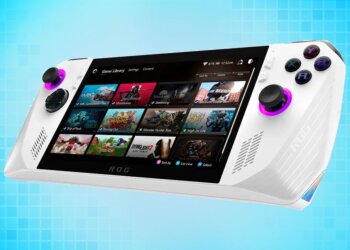Nintendo has decided to hold off on starting pre-orders for the Switch 2 in the United States, a decision that comes just two days after the White House declared new tariffs affecting a vast majority of countries. The company shared with Tom’s Hardware via email that they plan to delay these pre-orders beyond the initially scheduled date of April 9, 2025. The main concern here revolves around assessing the implications of these tariffs and the changing dynamics of the market. However, they assured us that the console’s official launch date of June 5, 2025, remains unchanged.
Announced on Wednesday, the Switch 2 is set to debut at a price of $449. With production based in China and Vietnam, Nintendo finds itself navigating a tricky situation. Although the U.S. has previously threatened to impose significant tariffs on products from China, hardware produced in Vietnam can still make its way to North America. This workaround helps to dodge the steep tariffs introduced earlier this year on Chinese imports by the Trump administration.
It appears the company was blindsided by the sweeping new tariffs that emerged just hours following the Switch 2’s official announcement. President Trump’s “Liberation Day” proclamations saw U.S. tariffs on Chinese products soar to 54%, and unexpectedly, Vietnam was hit with a hefty 46% tariff.
This development could lead to adjustments in the console’s price since the tariff hike on Vietnamese goods is substantial. Given that the Switch 2 is already priced 50% higher than its predecessor, this is a setback for both Nintendo and its eager customers. Nonetheless, there’s still a glimmer of hope that the company might manage to stick to the originally announced pricing when it eventually hits the shelves on June 5.
Speculation from some Vietnamese journalists suggests that President Trump’s decision to levy a 46% tariff on Vietnam may be a strategic move aimed at urging the country to engage in negotiations. Vietnam’s Deputy Prime Minister, Ho Duc Phoc, is gearing up for a trip to the U.S. soon, and it’s possible that some negotiations may prompt a reduction in these tariffs.
Yet, if the current 46% import duty on Vietnamese goods persists until the console’s launch date, Nintendo might be compelled to transfer these additional costs to consumers, leading to a rise in the console’s retail price. This would undoubtedly disappoint many of Nintendo’s loyal followers, but given the comprehensive nature of these tariffs, Nintendo is certainly not alone in facing such challenges.








































